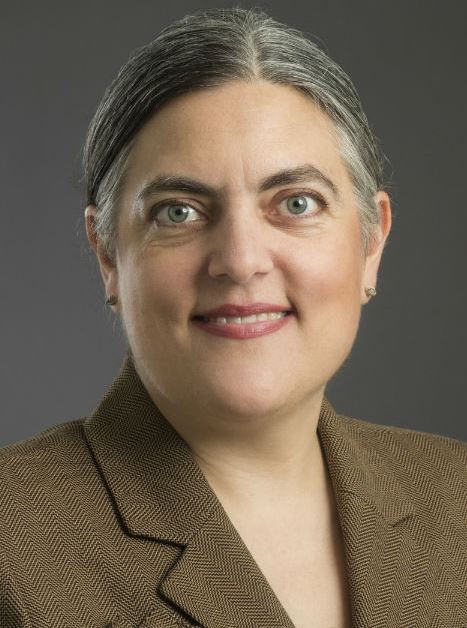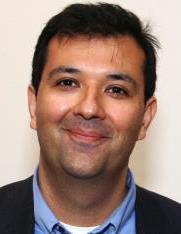2019 SPEAKERS
Ranjan Duara, MD, FAAN
Organizer
 Dr. Ranjan Duara is the Medical Director and Dennis C. Cole Family Chair in Alzheimer’s Disease Research at the Wien Center for Alzheimer’s Disease and Memory Disorders at Mount Sinai Medical Center in Miami Beach. He is a Professor of Neurology at the Herbert Wertheim College of Medicine (Department of Neurology) at Florida International University and Courtesy Professor of Neurology, University of Florida College of Medicine. He completed internal medicine and neurology residencies in India, the United Kingdom and at Thomas Jefferson University Hospital in Philadelphia, and did a fellowship in neuroscience and neuroimaging at NIH.
Dr. Ranjan Duara is the Medical Director and Dennis C. Cole Family Chair in Alzheimer’s Disease Research at the Wien Center for Alzheimer’s Disease and Memory Disorders at Mount Sinai Medical Center in Miami Beach. He is a Professor of Neurology at the Herbert Wertheim College of Medicine (Department of Neurology) at Florida International University and Courtesy Professor of Neurology, University of Florida College of Medicine. He completed internal medicine and neurology residencies in India, the United Kingdom and at Thomas Jefferson University Hospital in Philadelphia, and did a fellowship in neuroscience and neuroimaging at NIH.
Dr. Duara’s research has focused primarily on early diagnosis of Alzheimer’s disease and other dementias, neuroimaging, genetic epidemiology and the methodology for staging the transition from normal cognitive aging to dementia. He has contributed to over 200 articles in peer-review scientific journals as well many book chapters.
He is the Principal Investigator for the State of Florida Alzheimer’s Disease Initiative Brain Bank and Associate Director of the 1FLORIDA Alzheimer’s Disease Research Center. He has also been an investigator in numerous clinical trials of novel agents for the treatment of Alzheimer’s Disease.
Zoe Arvanitakis, MD, MS
Speaker – MCI Symposium, Session 1 (Sunday, 9:30 am)
 Dr. Zoe Arvanitakis is the Medical Director of the Rush Memory Clinic at the Rush Alzheimer’s Disease Center, and a Professor of Neurological Sciences, at Rush University Medical Center in Chicago. She is a board-certified neurologist with fellowship training in cognition and dementia at the Mayo Clinic, and a clinical neuroscientist with sub-specialization (MS) in epidemiology. She leads and collaborates on several National Institutes of Health (NIH) R01 grants, clinical trials, and other projects. Dr. Arvanitakis publishes original research on neurodegenerative, vascular, and metabolic cognitive impairment and dementia in aging, and recently co-edited a medical textbook. She serves on national and international funding agency, scientific journal, and meeting abstract review panels, and is a member of the NIH Neurological, Aging and Musculoskeletal Epidemiology (NAME) study section. Dr. Arvanitakis is a past chair of the Geriatric Neurology Section of the American Academy of Neurology (AAN), and an elected Fellow of the American Academy of Neurology (FAAN) and of the American Neurological Association (FANA).
Dr. Zoe Arvanitakis is the Medical Director of the Rush Memory Clinic at the Rush Alzheimer’s Disease Center, and a Professor of Neurological Sciences, at Rush University Medical Center in Chicago. She is a board-certified neurologist with fellowship training in cognition and dementia at the Mayo Clinic, and a clinical neuroscientist with sub-specialization (MS) in epidemiology. She leads and collaborates on several National Institutes of Health (NIH) R01 grants, clinical trials, and other projects. Dr. Arvanitakis publishes original research on neurodegenerative, vascular, and metabolic cognitive impairment and dementia in aging, and recently co-edited a medical textbook. She serves on national and international funding agency, scientific journal, and meeting abstract review panels, and is a member of the NIH Neurological, Aging and Musculoskeletal Epidemiology (NAME) study section. Dr. Arvanitakis is a past chair of the Geriatric Neurology Section of the American Academy of Neurology (AAN), and an elected Fellow of the American Academy of Neurology (FAAN) and of the American Neurological Association (FANA).
Late-life Blood Pressure Association with Cerebrovascular and Alzheimer’s Disease
Zoe Arvanitakis
Rush University Medical Center, Chicago, IL, USA
Cognitive impairment and dementia are common problems in older persons and nations are ill-prepared to face the large and growing public health burden resulting from these problems. A better understanding of the underlying pathophysiologic mechanisms leading to these problems is critical in order to develop more effective treatment and prevention strategies. Vascular risk factors are potentially modifiable, and interventions for these risk factors with both medicines and lifestyle approaches, are already available. We and other researchers aim to advance the scientific knowledge about vascular contributions to cognitive impairment and dementia (VCID). One risk factors of particular interest in dementia research is blood pressure (BP), which is commonly altered in aging and has been related to brain dysfunction including cognitive impairment and dementia. We use data and biospecimens from several large, epidemiologic longitudinal studies of community-dwelling older persons, including the Religious Orders Study and the Rush Memory and Aging Project, to examine the relation of level and change in BP in late-life to brain pathology and function. Postmortem autopsies from more than 1,100 older deceased research participants (mean postmortem interval = 8 hours) were systematically analyzed for the presences and severity of common neuropathologies of dementia. We report the relation of systolic BP (SBP) and diastolic BP (DBP) averages over the years (levels across the entire range of values) and changes over the years (slopes), to cerebrovascular (brain infarcts and vessel diseases) and neurodegenerative pathologies (Alzheimer’s disease). We found that both a higher level and a faster declining slope of BP, particularly of SBP, were related to more infarcts and more severe atherosclerosis. We also found that a higher level of SBP was related to more tangle pathology. These data contribute to furthering our understanding of the complex relation of late-life BP to brain pathology. Additional research will need to further examine this relation and the clinical implications of our findings.
Alireza Atri, MD, PhD
Speaker – MCI Symposium, Session 2 (Saturday, 1:15 pm)
 Dr. Alireza Atri is an internationally renowned cognitive neurologist, neuroscientist, clinical researcher and educator in the fields of Alzheimer’s disease (AD) and Related Dementias (ADRD). He is the Director of the Banner Sun Health Research Institute, Sun City, AZ, and also serves on the faculty at Brigham and Women’s Hospital and Harvard Medical School, Boston, MA, USA. He specializes in diagnostics, experimental therapeutics and care of individuals with cognitive disorders and dementia, particularly individuals with early-stage cognitive impairments and early-onset Alzheimer’s disease. Dr. Atri holds degrees from U.C.L.A. (Ph.D Biomathematics), U.C.S.F. (M.D.) and Harvard Medical School (M.M.Sc.). He completed post-graduate training and clinical and research fellowships at Harvard Medical School, Boston University and MIT, and served on the faculty of Massachusetts General Hospital for 15 years.
Dr. Alireza Atri is an internationally renowned cognitive neurologist, neuroscientist, clinical researcher and educator in the fields of Alzheimer’s disease (AD) and Related Dementias (ADRD). He is the Director of the Banner Sun Health Research Institute, Sun City, AZ, and also serves on the faculty at Brigham and Women’s Hospital and Harvard Medical School, Boston, MA, USA. He specializes in diagnostics, experimental therapeutics and care of individuals with cognitive disorders and dementia, particularly individuals with early-stage cognitive impairments and early-onset Alzheimer’s disease. Dr. Atri holds degrees from U.C.L.A. (Ph.D Biomathematics), U.C.S.F. (M.D.) and Harvard Medical School (M.M.Sc.). He completed post-graduate training and clinical and research fellowships at Harvard Medical School, Boston University and MIT, and served on the faculty of Massachusetts General Hospital for 15 years.
His international and collaborative research focuses on early detection, risk reduction, experimental therapeutics and best care practices in AD/ADRD. He has delivered over 250 invited continuing education programs, grand rounds and symposia on cognitive aging and impairment, and AD/ADRD worldwide; has presented over 200 papers at scientific conferences; and has authored more than 70 medical and scientific papers and book chapters. He is co-author and editor of Dementia: Comprehensive Principles and Practices, Oxford University Press, 2014.
Doctor, Doctor: A Diagnostic Case Comparison of Misremembering, Misbehavior, Misunderstanding, and Mis- and Dys-Execution involving Two Doctoral Professionals
Alireza Atri
Banner Sun Health Research Institute, Sun City, AZ, USA
In this presentation a diagnostic comparison will be made between the cases of a 51 year old white male working doctoral professional and a 74 year old white male retired doctoral professional who presented due to seemingly similar concerns regarding changes in memory, behavior, personality, and the ability to manage their daily responsibilities. The utility of multimodal imaging, that occurred as part of a tiered and pragmatic evaluation process, to help disambiguate apparently equivocal test results and to inform the etiological diagnosis, disclosure and care planning will be presented and discussed.
Lisa Barnes, PhD
Keynote Lecture – Special Topic Workshop (9:15 am); Speaker – Forum (Sunday, 3:45 pm)
 Dr. Lisa Barnes, Alla V. and Solomon Jesmer chair of Gerontology and Geriatric Medicine and professor of Neurological Sciences and Behavioral Sciences, is a cognitive neuropsychologist in the Rush Alzheimer’s Disease Center. Her work is focused on the epidemiology of aging and racial differences in chronic diseases of aging.
Dr. Lisa Barnes, Alla V. and Solomon Jesmer chair of Gerontology and Geriatric Medicine and professor of Neurological Sciences and Behavioral Sciences, is a cognitive neuropsychologist in the Rush Alzheimer’s Disease Center. Her work is focused on the epidemiology of aging and racial differences in chronic diseases of aging.
Dr. Barnes received her PhD in biopsychology from the University of Michigan and completed a 3-year NIH post-doctoral fellowship in cognitive neuroscience at the University of California, Davis. She is the Principal Investigator of three community-based cohort studies of older African Americans, and the Director of the Rush Center of Excellence on Disparities in HIV and Aging (CEDHA).
Dr. Barnes is internationally recognized for her contributions to minority aging and minority health. She has published extensively on cognitive aging in older African Americans, and has received numerous awards and honors for her work in minority communities.
Discrimination, Stress and Cognitive Performance in African Americans
Lisa Barnes
Rush University Medical Center, Chicago, IL, USA
Stress is generally defined as environmental demands that tax or exceed the adaptive capacity of an organism and result in biological or psychological changes that place the organism at risk for disease. Stress has consistently been shown to be an important determinant of many poor health outcomes in older adults, and a growing body of research suggests that stressful life experiences linked to race can also have adverse effects on the health of older African Americans. For example, perceived discrimination, an important psychosocial stressor for African Americans, has been correlated with a number of adverse health outcomes in African Americans. However, relatively few studies have examined its association with cognitive function. This presentation will share results from the Rush cohort studies that demonstrate a link between perceived discrimination, perceived stress, and cognition among older African Americans without dementia at baseline. Potential underlying mechanisms of the association and future directions will also be discussed.
Sylvie Belleville, PhD
Speaker – Public Educational Forum (Sunday, 3:25 pm)
 Dr. Sylvie Belleville is Full Professor at the Psychology Department of University of Montreal and holds the Canada Research Chair on Cognitive neuroscience of aging and brain plasticity. She is Director of the Research Center of the Institut Universitaire de Gériatrie de Montréal, which is the largest francophone Research center on aging.
Dr. Sylvie Belleville is Full Professor at the Psychology Department of University of Montreal and holds the Canada Research Chair on Cognitive neuroscience of aging and brain plasticity. She is Director of the Research Center of the Institut Universitaire de Gériatrie de Montréal, which is the largest francophone Research center on aging.
Dr. Belleville is well known for her studies on the neuropsychology of memory in aging and dementia and has contributed to a better understanding of the neuropsychological deficits found in persons with very early signs of Alzheimer’s disease (or mild cognitive impairment). She has developed an important research program related to cognitive training in healthy aging and mild cognitive impairment and to processes of compensation and plasticity in older adults with or without cognitive deficit. She has more than 180 peer-reviewed publications. Her research is supported by grants from all major Quebec and Canadian grant agencies including the Canadian Institutes of Health Research (CIHR) Foundation grant.
She is member of the Advisory board of the CIHR Institute of Aging, head of the Québec Consortium Québécois for early identification of Alzheimer’s disease (CIMA- Q) and leader of the national team “Cognitive intervention and brain plasticity, Team 10” for the Canadian Consortium on Neurodegeneration in Aging. She received the Adrien Pinard Prize of the Quebec Psychology Research Society (SQRP) and Professional Prize of the Quebec Psychologist Association (OPQ) in recognition of her contribution.
Cognitive Training in MCI and SCI: Impact on Cognition, Strategy Use and Virtual Reality Measures of Real-life Cognition
Sylvie Belleville
University of Montreal, Montreal, QB, Canada
Cognitive training has tremendous potential to promote autonomy and quality of life in persons with mild cognitive impairment or subjective complaint. Here I will present recent findings regarding the efficacy of cognitive training on proximal tasks and will discuss how it transfers to real-life context. The focus will be on strategic training where individuals learn news strategies to memorize or control their attention.
I will first show that strategic memory training improves cognition when compared to an active control condition and that the effect is durable over a 6-month period. I will then address context transfer, i.e., whether cognitive training improves real-life cognitive abilities. I will discuss the limitations of self-reported questionnaires to study transfer effects. These will be contrasted to virtual reality tasks which reproduce the complexity of tasks of everyday life while allowing objective performance measurement.
I will present two studies that rely on virtual reality to measure cognitive training transfer in simulations that reproduce real-life cognition. Overall, results indicate that the positive effect of cognitive training can transfer to complex simulated scenarios that reproduce real-life demands. These results indicate that virtual reality has potential as a measure of real-life cognition and can be sensitive to cognitive training transfer.
Melanie Chandler, PhD
Speaker – MCI Symposium (Saturday, 4:15 pm)
 Dr. Melanie Chandler is board certified neuropsychologist at Mayo Clinic Florida. Dr. Chandler’s professional responsibilities include a mixture of research, patient care, and teaching. Her research interests have focused on interventions in Mild Cognitive Impairment (MCI) and early dementia. She has been consistently funded for over a decade to conduct research into behavioral interventions in MCI, including funding from the Alzheimer’s Association, NIH-NINR, and PCORI.
Dr. Melanie Chandler is board certified neuropsychologist at Mayo Clinic Florida. Dr. Chandler’s professional responsibilities include a mixture of research, patient care, and teaching. Her research interests have focused on interventions in Mild Cognitive Impairment (MCI) and early dementia. She has been consistently funded for over a decade to conduct research into behavioral interventions in MCI, including funding from the Alzheimer’s Association, NIH-NINR, and PCORI.
She co-founded the Healthy Actions to Benefit Independence and Thinking program offered now at 4 major research centers. The HABIT program employs behavioral interventions and rehabilitation techniques in patients with MCI. She received her MS in Rehabilitation Psychology and PhD in Clinical Psychology at the University of Texas Southwestern Medical Center at Dallas, and she completed her postdoctoral fellowship at the Mayo Clinic in Rochester, Minnesota. She was recipient of the Robert A. and Phyllis Levitt Early Career Award in Neuropsychology from the American Psychological Association’s Society for Clinical Neuropsychology in 2015 and leads the Ralph C. Wilson Jr. Foundation Endowment for the HABIT Program at the Mayo Clinic.
Comparative Effectiveness of Behavioral Interventions for MCI
Melanie Chandler
Mayo Clinic, Jacksonville, FL, USA
The focus in rehabilitation for individuals with Mild Cognitive Impairment (MCI) can be to improve the impaired cognitive ability itself (remediation), to learn methods to adapt to the changed cognitive ability without attempting to improve the ability itself (compensation), or both simultaneously. The computerized brain training industry has largely sought to fill the space for remediation of cognitive loss in aging and MCI. Computerized interventions may have a positive impact on cognitive measures of working memory. However, the question remains whether these skills transfer to everyday life functioning or a broader sense of improved quality of life for those with MCI. Dr. Melanie Chandler of Mayo Clinic Jacksonville will present information on how efforts to recover cognitive function can be combined with efforts to compensate for cognitive loss in multimodal efforts to sustain daily function and quality of life in patients with mild cognitive impairment. She will share insights from a large comparative effectiveness trial exploring behavioral interventions for mild cognitive impairment.
Suzanne Craft, PhD
Speaker – MCI Symposium (Saturday, 9:50 am)
 Dr. Suzanne Craft received her PhD from the University of Texas at Austin, and then completed fellowships at Boston University and Harvard Medical School. She is Professor of Medicine at Wake Forest School of Medicine, where she is Founding Director of the National Institute on Aging Alzheimer’s Disease Research Center. Dr. Craft investigates the role of insulin resistance in the development of Alzheimer’s disease, and has conducted clinical trials of insulin sensitizing medications, intranasal insulin delivery, and dietary intervention to treat or prevent Alzheimer’s disease. She leads a ground-breaking multi-site trial of intranasal insulin for the treatment of Alzheimer’s disease funded by the National Alzheimer’s Project Act. She is also currently conducting trials examining the therapeutic effects of ketogenic diets on brain function. Dr. Craft has received a National Institute of Health MERIT award for research excellence and an Alzheimer’s Association Zenith Award for special contributions to Alzheimer’s research.
Dr. Suzanne Craft received her PhD from the University of Texas at Austin, and then completed fellowships at Boston University and Harvard Medical School. She is Professor of Medicine at Wake Forest School of Medicine, where she is Founding Director of the National Institute on Aging Alzheimer’s Disease Research Center. Dr. Craft investigates the role of insulin resistance in the development of Alzheimer’s disease, and has conducted clinical trials of insulin sensitizing medications, intranasal insulin delivery, and dietary intervention to treat or prevent Alzheimer’s disease. She leads a ground-breaking multi-site trial of intranasal insulin for the treatment of Alzheimer’s disease funded by the National Alzheimer’s Project Act. She is also currently conducting trials examining the therapeutic effects of ketogenic diets on brain function. Dr. Craft has received a National Institute of Health MERIT award for research excellence and an Alzheimer’s Association Zenith Award for special contributions to Alzheimer’s research.
Insulin Dysregulation and the Pathophysiology of Alzheimer’s Disease
Suzanne Craft
Wake Forest School of Medicine, Winston-Salem, NC , USA
Our knowledge of the multifaceted role of insulin in the central nervous system has expanded rapidly in recent years. It is now apparent that perturbation of this role by insulin resistance and hyperinsulinemia can impact bioenergetic pathways in periphery and brain, and increase the risk for aging-related neurodegenerative disorders such as Alzheimer’s disease (AD) via effects on a number of mechanisms, delineated in elegant in vitro and animal studies. We have investigated these pathways in human models using dietary and pharmacologic modulation of insulin sensitivity. We will present results supporting the hypothesis that insulin resistance-associated effects on cerebral glucose metabolism and blood flow, β-amyloid regulation, mitochondrial function and inflammation contribute to AD pathophysiology. This premise raises the possibility that treatments aimed at improving or overcoming insulin resistance will benefit patients with AD. We will discuss evidence supporting this possibility from therapeutic trials using insulin intranasal insulin and diet interventions such as the ketogenic diet.
Rosie Curiel Cid, PhD
Speaker – Public Educational Forum (Sunday, 4:15 pm)
 Dr. Rosie Curiel Cid is a Neuropsychologist and Assistant Professor in the Department of Psychiatry and Behavioral Sciences at the University of Miami Miller School of Medicine and Chief of Cross-Cultural Neuropsychology and Cognitive Neuroscience at the Center for Cognitive Neuroscience and Aging. Dr. Curiel Cid specializes in the cognitive and functional assessment of neurodegenerative conditions, such as Alzheimer’s disease and related disorders. She is Principal Investigator of a longitudinal study funded by the National Institutes of Health/National Institute on Aging entitled: Precision-based Computerized Assessment for the Detection of MCI in Older Adults, and is an active co-investigator on various state and federally funded studies related to aging and cognition including the 1Florida Alzheimer’s Disease Research Center.
Dr. Rosie Curiel Cid is a Neuropsychologist and Assistant Professor in the Department of Psychiatry and Behavioral Sciences at the University of Miami Miller School of Medicine and Chief of Cross-Cultural Neuropsychology and Cognitive Neuroscience at the Center for Cognitive Neuroscience and Aging. Dr. Curiel Cid specializes in the cognitive and functional assessment of neurodegenerative conditions, such as Alzheimer’s disease and related disorders. She is Principal Investigator of a longitudinal study funded by the National Institutes of Health/National Institute on Aging entitled: Precision-based Computerized Assessment for the Detection of MCI in Older Adults, and is an active co-investigator on various state and federally funded studies related to aging and cognition including the 1Florida Alzheimer’s Disease Research Center.
Her program of research focuses on the development of novel and cross-culturally applicable cognitive assessment paradigms. She, along with Dr. David Loewenstein and their team, have generated promising data that these novel cognitive outcome measures are sensitive enough to detect subtle cognitive deficits specific to preclinical Alzheimer’s disease, and are highly associated with biological markers of early AD brain pathology including CSF markers, amyloid imaging and structural and functional neuroimaging. Moreover, her projects focus on technologically enhancing these innovative cognitive paradigms into user-friendly clinical outcome measures with the goal of advancing cognitive assessment efforts in clinical trials targeting preclinical disease.
Acculturation, Cognition, and Brain Imaging Correlates in a Diverse Cohort
Rosie Curiel Cid
University of Miami Miller School of Medicine, Miami, FL, USA
Lifestyle factors relevant to maintaining health or promoting disease are highly influenced by culture. Given the ever-growing immigrant population in South Florida and other major metropolitan areas throughout the county, it is important to better understand to what degree acculturation to the mainstream culture or lack thereof affects risk of developing diseases such as Alzheimer’s disease. Because culture also has been shown to influence attitudes towards cognitive testing and may impact performance on these tests, assessing acculturation in diverse populations may yield important information about special considerations that the scientific community should take into account when evaluating individuals with Alzheimer’s disease and related disorders. This talk also presents similarities and differences in brain imaging correlates associated with cognitive decline in diverse cohorts and presents the variance observed on cognitive test performance that may be explained by acculturation.
Bradford Dickerson, MD
Co-Chair and Speaker, MCI Symposium, Session 2 (Saturday, 11:35 am)
 Dr. Brad Dickerson is the Director of the Massachusetts General Hospital Frontotemporal Disorders Unit and Neuroimaging Lab in Boston. He holds the Tom Rickles Chair in Progressive Aphasia Research and is a behavioral neurologist in the MGH Memory Disorders Unit and Leader of the Neuroimaging Core of the MGH Alzheimer’s Disease Research Center. He is an Associate Professor of Neurology at Harvard Medical School.
Dr. Brad Dickerson is the Director of the Massachusetts General Hospital Frontotemporal Disorders Unit and Neuroimaging Lab in Boston. He holds the Tom Rickles Chair in Progressive Aphasia Research and is a behavioral neurologist in the MGH Memory Disorders Unit and Leader of the Neuroimaging Core of the MGH Alzheimer’s Disease Research Center. He is an Associate Professor of Neurology at Harvard Medical School.
Dr. Dickerson runs a busy weekly clinic caring for patients with various forms of cognitive impairment and dementia, as well as providing training for clinical and research fellows. His research employs quantitative structural, functional, and molecular neuroimaging techniques, in addition to quantitative behavioral assessments, to investigate dementias as well as normal aging. He has published more than 130 articles in peer-reviewed scientific journals as well as many book chapters and has edited two books on dementia. He is active in teaching, leading an annual course on Cognitive Neurology at the American Academy of Neurology and co-directing the annual Harvard Dementia Course. He is Chair of the Medical and Scientific Advisory Council of the Massachusetts Alzheimer’s Association and is a member of the medical advisory council of the national Association for FTD. He has won a number of awards, including the American Academy of Neurology’s Norman Geschwind Award in Behavioral Neurology.
The Promise and Pitfalls of Imaging Biomarkers in the Diagnostic Evaluation of Research Participants with MCI
Bradford Dickerson
Massachusetts General Hospital, Boston, MA, USA
Many clinical research studies, including interventional trials, enroll patients with various forms of mild cognitive impairment on the basis of presumed neuropathology, as well as clinical phenotype. When a patient has a prototypical form of one of several clinical phenotypes, such as semantic variant primary progressive aphasia, prior probability of a specific neuropathology may be strong. Imaging biomarkers may help confirm or refute the hypothesis generated from on clinical features. In patients with other clinical phenotypes, such as corticobasal syndrome, imaging or other biomarkers maybe very important for prediction of likely pathology. Certain patterns of atrophy on MRI suggest specific molecular pathologies. Case studies will be discussed that illustrate all of these points. Comprehensive clinical and biomarker assessments of individual patients with various forms of mild cognitive impairment will improve our ability to predict likely neuropathology in these patients in the earliest stages of neurodegenerative dementias.
Dennis Dickson, MD
Speaker – MCI Symposium, Session 1 (Saturday, 10:40 am)
 Dr. Denis Dickson is a neuropathologist who focuses on studies of neurodegenerative diseases, such as Alzheimer’s disease and Parkinson’s disease. He is director of the Udall Center of Excellence in Parkinson’s Disease Research. He also oversees the Mayo Clinic brain bank. For more than 20 years, he has built one of the largest and well-characterized brain banks in the world — a resource that has benefitted research of many scientists and clinicians.
Dr. Denis Dickson is a neuropathologist who focuses on studies of neurodegenerative diseases, such as Alzheimer’s disease and Parkinson’s disease. He is director of the Udall Center of Excellence in Parkinson’s Disease Research. He also oversees the Mayo Clinic brain bank. For more than 20 years, he has built one of the largest and well-characterized brain banks in the world — a resource that has benefitted research of many scientists and clinicians.
Dr. Dickson earned a bachelor’s degree in biochemistry and his medical degree from the University of Iowa, where he also spent a post-sophomore year in anatomic pathology and neuropathology. He completed residency in anatomic pathology and neuropathology at Bronx Municipal Hospital Center and Albert Einstein College of Medicine in New York City in 1986, where he was the director of Neuropathology for 10 years before arriving at Mayo Clinic.
One of his first research papers described monoclonal antibodies specific to neurofibrillary pathology in Alzheimer’s disease and progressive supranuclear palsy (PSP), a rare parkinsonian disorder. Dr. Dickson went on to develop the world’s largest brain bank for PSP and related disorders.
Studying donated brains has led to a number of discoveries, including new genes and genetic risk factors for Alzheimer’s disease, PSP and other major neurodegenerative disorders, such as Lewy body dementia, frontal lobe dementia and amyotrophic lateral sclerosis (ALS), also known as Lou Gehrig’s disease. More recently, he studied the frequency of chronic traumatic encephalopathy (CTE) in the Mayo Clinic brain bank with a research fellow, Kevin Bieniek, Ph.D., and found it only in brains of former athletes involved in contact sports.
In addition to providing a final diagnosis, neuropathologic findings provide closure to the family and feedback to the physicians involved in care of the patient. They also help elucidate the molecular pathology of these disorders, which will eventually lead to better diagnosis, treatment and prevention of these disorders, according to Dr. Dickson.
Dr. Dickson has been nationally and internationally recognized with awards, such as the Metropolitan Life Award, Saul R. Korey Award from the AANP, the Fred Springer Award from the American Parkinson’s Disease Association, the Alfred Meyer Award from the British Neuropathological Society and the Potamkin Prize from the American Academy of Neurology. In 2015, he was named a Mayo Clinic Distinguished Investigator.
Interaction of Vascular and Degenerative Pathology
Dennis Dickson
Mayo Clinic, Jacksonville, FL, USA
Cerebrovascular pathology increases with frequency with age and is a common comorbidity in neurodegenerative disorders. The brain bank at Mayo Clinic in Jacksonville has a large collection of brains of individuals with neurodegenerative disorders. Included in this collection are 1,520 cases from the State of Florida Alzheimer Disease Initiative. This series includes 743 men and 777 women, with an average age at death of 79 years. Most (92%) are Caucasian. Alzheimer type pathology is assessed with thioflavin S fluorescent microscopy and cerebrovascular pathology is noted on both macroscopic and microscopic evaluations. Presence of macroscopic infarcts (large encephalomalacia and smaller lacunar infarcts) and hemorrhages, as well as microinfarcts, leukoencephalopathy and cribriform change are noted in all cases. Presence cerebrovascular pathology increased in frequency with age from 11% to 21% to 33% to 48% to 61% for those <60, 60-70, 70-80, 80-90 and >90 years of age. Cases with significant vascular pathology were more frequently female (p=0.005) and significantly older (p<0.001). They were significantly less likely to meet CDLB pathologic criteria (intermediate to high likelihood) for dementia with Lewy bodies (p<0.001). They had lower Braak NFT stage (p=0.003), lower Thal amyloid phase (p=0.004) and smaller brain weights (p<0.001). The single factor most highly correlated with presence of significant vascular pathology in a multiple regression analysis was age (p<0.001), while brain weight (p=0.001), meeting CDLB criteria (p<0.001), and presence of TDP-43 pathology (p=0.03) were negatively associated with vascular pathology. In an effort to disentangle the contribution of vascular pathology to neurodegenerative pathology, a smaller multiethnic prospective cohort (Einstein Aging Study) was evaluated with similar methods. Considering 119 EAS subjects who were demented at the time of death (Blessed scored of >8), presence of vascular pathology was independently associated with older age (p<0.001) and lower Braak NFT stage (p=0.01), as well as lower senile plaque counts in hippocampus (p=0.001) and less neuronal loss in basal nucleus of Meynert (p=0.011). To study the effects of vascular pathology on clinical diagnostic accuracy, we studied in a series of 1300 cases of progressive supranuclear palsy (PSP), 262 with significant vascular pathology. Clinicians correctly diagnosed PSP in 85% of PSP patients without vascular pathology, but in 76% of those with comorbid vascular pathology (Chi-Square 11.1, p<0.001). A multiple regression analysis indicated that in addition to presence to vascular pathology, older age, Alzheimer pathology and TDP-43 pathology also contributed to diagnostic inaccuracy in PSP. These three separate study cohorts indicate that concurrent cerebrovascular pathology contributes to clinical uncertainty in the elderly and that its contribution is separate from that do to the multiple proteinopathy of aging.
Mary Ganguli, MD, MPH
Chair – Public Educational Forum (Sunday, 1:30 – 5:00 pm)
 Dr. Mary Ganguli is a geriatric psychiatrist and psychiatric/neuroepidemiology at the University of Pittsburgh, where she teaches residents, fellows, and graduate students. She provides geriatric psychiatry outpatient services at the University of Pittsburgh Medical Center.
Dr. Mary Ganguli is a geriatric psychiatrist and psychiatric/neuroepidemiology at the University of Pittsburgh, where she teaches residents, fellows, and graduate students. She provides geriatric psychiatry outpatient services at the University of Pittsburgh Medical Center.
Dr. Ganguli has been conducting population-based studies of cognitive impairment and dementia since 1987. She served on the Neurocognitive Disorders Work Group of DSM-5, and is a member of the AAN Practice Parameter Work Group on MCI. She previously served on the National Advisory Council on Aging. Dr. Ganguli is Associate Editor of the Journal of the American Geriatrics Society and of International Psychogeriatrics, and an Editorial Advisory Board member of Alzheimer Disease and Associated Disorders.
Rebecca Gottesman, PhD
Chair and Speaker – MCI Symposium (Saturday, 8:30 am); Forum (Sunday, 2:15 pm)
 Dr. Rebecca Gottesman is a Professor of Neurology, with a joint appointment in Epidemiology at the Johns Hopkins Bloomberg School of Public Health, and is a core faculty member of the Welch Center for Prevention, Epidemiology, and Clinical Research. Her primary clinical interest is stroke.
Dr. Rebecca Gottesman is a Professor of Neurology, with a joint appointment in Epidemiology at the Johns Hopkins Bloomberg School of Public Health, and is a core faculty member of the Welch Center for Prevention, Epidemiology, and Clinical Research. Her primary clinical interest is stroke.
Her primary research interests include the vascular contribution to cognitive impairment and dementia, with evaluation not only of stroke as a potential risk factor for cognitive change but also vascular risk factors such as hypertension. She works primarily with the Atherosclerosis Risk in Communities (ARIC) study in order to evaluate these long-term associations between vascular risk factors and vascular disease, each, and cognition, using epidemiology and neuroimaging methods. She runs the SCAN lab (Stroke and Cognitive impairment Analysis using Neuroepidemiology) to pursue these research interests.
Dr. Gottesman received her medical degree from the Columbia College of Physicians and Surgeons in New York. She completed her internship in internal medicine at the Johns Hopkins Bayview Medical Center, and her neurology residency at the Johns Hopkins Hospital in Baltimore, Maryland. She completed a stroke fellowship and received a PhD in the Graduate Training Program in Clinical Investigation (GTPCI) from the Johns Hopkins Bloomberg School of Public Health.
Amyloid Deposition in Healthy Aging, Vascular and Neurodegenerative Disease and Genetic Effects
Rebecca Gottesman
Johns Hopkins University, Baltimore, MD, USA
Vascular risk factors, particularly when measured in midlife, have been shown to be associated with cognitive decline and dementia, and the pathologies of Alzheimer’s disease (AD) and cerebrovascular disease overlap in many cases of dementia. What has been less clear is whether vascular risk factors are associated with dementia and with Alzheimer’s disease simply because of co-occurrence of two pathologies (cerebrovascular disease and AD neurodegeneration), increasing the chances of passing below a clinical threshold and earning a dementia diagnosis, or because vascular risk factors directly contribute to the development or progression of AD neuropathologic processes. Using data primarily from the Atherosclerosis Risk in Communities (ARIC) study, a large community-based epidemiologic study in the U.S., Dr. Gottesman will review evidence for a vascular contribution to cognitive decline and dementia, with an emphasis on risk factor status in middle age. She will also review several neuroimaging studies showing potential mechanisms of this association, using both brain MRI, with evaluation of brain volumes and cerebrovascular disease via brain MRI, but also brain amyloid PET imaging, and the contribution of vascular risk factors to these imaging changes. Finally, she will discuss how the impact of vascular risk may be modified in the presence of elevated genetic risk, and how these separate components (vascular risk, genetic risk, and AD neuropathology) contribute separately and synergistically to cognitive trajectories.
Vascular and Degenerative Causes of Cognitive Impairment: How Are They Linked?
Rebecca Gottesman
Johns Hopkins University, Baltimore, MD, USA
Although Alzheimer’s Disease (AD) is the leading cause of dementia, there is accumulating evidence that many individuals with dementia actually have a combination of pathologies. Specifically, there is a great deal of overlap between vascular changes in the brain and Alzheimer’s neurodegeneration: on autopsy studies, many individuals with a prior diagnosis of Alzheimer’s disease also have cerebrovascular changes, and many cases of vascular dementia have evidence of AD neuropathology as well. In this talk, Dr. Gottesman will review evidence for a vascular contribution to dementia and to Alzheimer’s disease specifically, will review the overlap between these diagnoses, and will discuss implications for prevention and treatment. She will emphasize literature focusing on vascular risk factor status in middle age as a key time frame for increasing risk for cognitive impairment and dementia. Dr. Gottesman will primarily discuss evidence from the Atherosclerosis Risk in Communities (ARIC) study, which is a community-based study of nearly 16,000 adults from four sites across the U.S., who have been followed for over 30 years, with repeated cognitive assessments, consideration of cognitive status with evaluation of mild cognitive impairment and dementia, and, in a subset, with brain imaging. Potential mechanisms for a vascular contribution to dementia will be discussed as well, with a focus on studies using various forms of brain imaging, to include brain MRI and PET scans.
Todd Golde, MD, PhD
Keynote Speaker – Public educational Forum (Sunday, 1:30 pm)
 Dr. Todd Golde is the Director of the Evelyn F. and William L McKnight Brain Institute, Director of the 1Florida ADRC, Professor in the Department of Neuroscience, College of Medicine, and serves as Director of the Center for Translational Research in Neurodegenerative Disease at the University of Florida.
Dr. Todd Golde is the Director of the Evelyn F. and William L McKnight Brain Institute, Director of the 1Florida ADRC, Professor in the Department of Neuroscience, College of Medicine, and serves as Director of the Center for Translational Research in Neurodegenerative Disease at the University of Florida.
Dr. Golde directs a robust program of scientific discovery aimed at translating basic discoveries in neurodegenerative disease into diagnostics and treatments for patients. He served as Professor and Department Chair in the Department of Neuroscience at Mayo Clinic Jacksonville. Over the past 12 years, Dr. Golde has focused on the role of the amyloid b protein in Alzheimer’s disease. He joined the Department of Pathology at the University of Pennsylvania as an Assistant Professor and two years later joined the Neurodegenerative Research group in Mayo Clinic Jacksonville.
Dr. Golde completed a clinical residency in Laboratory Medicine at the University of Pennsylvania. He received his MD and PhD degrees from Case Western Reserve University.
A New Approach to Treating Alzheimer’s Disease?
Todd E. Golde1, Hunter S. Futch1, Karen McFarland1, Brenda D. Moore1, M. Zino Kuhn1, Benoit Giasson1, Thomas Ladd1, Thomas Ladd1, Marshall Goodwin1, Yong Ran1, Pedro Cruz1, Danny Ryu1, Cara Croft1, Yona Levites1, Christopher Janus1, Paramita Chakrabarty1, Andrew Judge2, Todd Brusko3, Annette de Kloet4, Eric G. Krause
1McKnight Brian Institute, 1Florida ADEC, Center for Translational Research in Neurodegenerative Disease, Department of Neuroscience and Neurology, College of Medicine University of Florida, Gainesville, FL, 32610
2Department of Physical Therapy, College of Public Health and Health Professions, University of Florida, Gainesville, FL, 32610
3Diabetes Institute, Department of Pathology, Immunology and Laboratory Medicine, College of Medicine, University of Florida, Gainesville, FL, 32610
4McKnight Brian Institute, Department of Physiology and Functional Genomics, College of Medicine, University of Florida, Gainesville, FL, 32610
5McKnight Brian Institute, Department of Pharmacodynamics, College of Pharmacy, University of Florida, Gainesville, FL, 32610
There is discussion among Alzheimer’s disease (AD) researchers regarding the need for combinatorial therapies targeting multiple pathways to achieve significant efficacy when treating symptomatic stages of AD. An alternative is to engage a target that could have effects on multiple pathways. Corticotropin releasing factor (CRF) may represent such a target in AD. CRF is the initiating factor of hypothalamic-pituitary-adrenal (HPA) axis activation. CRF has been directly implicated in regulating the underlying amyloid and tau proteinopathies and independently regulating, presumably due to HPA axis activation and corticosteroid excess, brain atrophy and cognitive decline. Past efforts to develop small molecules to target the high affinity CRF receptor, CRFR1, or other targets within the HPA axis have not been particularly fruitful. These data, and our own data showing that CRFR1 antagonists do not block stress- or CRF-induced increases in Ab and in many cases acted like inverse g-secretase modulators, led us to explore the feasibility of targeting this pathway with an immunologic approach. We have successfully developed a low pM affinity monoclonal antibody targeting CRF (anti-CRF mAb) that dose-dependently blocks stress-induced increases in corticosterone, and can rapidly reverse select Cushingoid phenotypes in mice overexpressing CRF. Metabolic and immunologic studies reveal numerous effects consistent with long-lasting suppression of the HPA-axis; multi-organ transcriptomic studies shows robust regulation of numerous genes that may mediate the physiologic effects of the anti-CRF mAb. No toxic effects have been observed to date. We hypothesize that passive immunotherapy targeting CRF represents a novel therapeutic approach to AD and possibly many other disorders. Through pleiotropic actions, anti-CRF immunotherapy may slow the development of Ab and tau pathologies as well as brain atrophy and cognitive decline. The later assertion is supported by data from Cushing’s syndrome where hippocampal atrophy is partially reversed following normalization of cortisol levels, and is consistent with data in aged humans that elevated cortisol levels are associated with an increased rate of cognitive decline.
Benjamin Hampstead, PhD
Chair and Speaker – MCI Symposium (Saturday, 2:25 pm)
 Dr. Benjamin Hampstead is a licensed Psychologist and board certified Clinical Neuropsychologist who specializes in aging and dementia. His research is funded by the National Institutes of Health and Department of Veterans Affairs and examines the neuroanatomical bases of age- and disease-related cognitive change using structural and functional neuroimaging.
Dr. Benjamin Hampstead is a licensed Psychologist and board certified Clinical Neuropsychologist who specializes in aging and dementia. His research is funded by the National Institutes of Health and Department of Veterans Affairs and examines the neuroanatomical bases of age- and disease-related cognitive change using structural and functional neuroimaging.
Additionally, Dr. Hampstead investigates the neurorehabilitation of cognitive impairment using both cognitive rehabilitation and non-invasive electrical brain stimulation. He has authored multiple studies and co-edited a book entitled, “Cognitive Plasticity in Neurologic Disorders” on these topics.
Neuromodulation as a Rehabilitation Tool in Aging, MCI and Dementia
Benjamin Hampstead, PhD
University of Michigan Medical School, Ann Arbor, MI, USA
Decades of observational neuroimaging research have enhanced our understanding of the structural and functional consequences of disease pathology on specific brain regions and their associated networks. While still at a nascent stage, non-invasive brain stimulation (NIBS) offers the potential to directly modulate functioning in these regions/networks. This session will first introduce the most common types of NIBS and will then provide a broad overview of empirical evidence supporting its use to date. The remainder of the session will be devoted to discussion of methodological factors that may affect outcome and will include neuropsychological and neurophysiologic data (via structural/functional magnetic resonance imaging) from patients with various types of dementia to highlight such factors. Attendees will be able to name three forms of NIBS and their potential cognitive effects upon completion of the session.
David Loewenstein, PhD, ABPP
Speaker – Public Educational Forum (Sunday – 2:35 pm)
 Dr. David Loewenstein is Director of Neuropsychology and Professor of Psychiatry and Behavioral Sciences at the Miller School of Medicine at the University of Miami. He has been actively involved in collaborative research with Dr. Ranjan Duara and other scientists at the Wien Center for Alzheimer’s Disease and Memory Disorders at Mount Sinai Medical Center, Miami Beach Florida where Dr. Loewenstein served as Director Neuropsychology Laboratories and Research Director for over 20 years.
Dr. David Loewenstein is Director of Neuropsychology and Professor of Psychiatry and Behavioral Sciences at the Miller School of Medicine at the University of Miami. He has been actively involved in collaborative research with Dr. Ranjan Duara and other scientists at the Wien Center for Alzheimer’s Disease and Memory Disorders at Mount Sinai Medical Center, Miami Beach Florida where Dr. Loewenstein served as Director Neuropsychology Laboratories and Research Director for over 20 years.
Dr. Loewenstein has a number of research interests centering on the early detection of early cognitive impairment in neurodegenerative and other brain disorders, development of novel cognitive and functional measures, examining relationships between neuropsychological measures, neuroimaging and other biomarkers of early Alzheimer’s disease. Further, Dr. Loewenstein and other investigators in his laboratory have been involved in developing cognitive and functional interventions for normal elderly patients as well as those with Alzheimer’s disease and related disorders.
Detect of the Very Earliest Stages of Alzheimer’s Disease Using Cognitive Testing and Brain Imaging
David Loewenstein, PhD, ABPP
University of Miami Miller School of Medicine, Miami, FL, USA
There is a critical need to develop disease-modifying treatments for Alzheimer’s Disease (AD) before the occurrence of significant multi-system degeneration within the brain. Unfortunately, standard cognitive measures are frequently insensitive to the earliest manifestation of AD disease or tracking changes over time.
Recent findings have suggested that the LASSI-L cognitive “stress test” developed in our laboratories, is sensitive to the earliest changes associated with Alzheimer’s disease (AD) and functions much like and exercise cardiogram which is sensitive to abnormalities when the heart is under stress.
We will present recent data that show that the proactive semantic interference (PSI) and the failure to recover from proactive semantic interference (frPSI) differentiates between older adults with amnestic mild cognitive (aMCI) who are clinically diagnosed with AD as their primary underlying pathology with amyloid positive (Amy+) PET scans versus individuals with amnestic mild cognitive impairment (aMCI) who have clinical symptoms of AD but have a negative amyloid scan (Suspected Non-AD pathology: SNAP) as well as other non-AD pathologies. Data from our international collaborators will be presented gas to how frPSI is found in a significant number of asymptomatic middle age adults who has a parent affected by late onset AD and its relation to fMRI connectivity. Finally, the comparative efficacy of the LASSI-L and other memory measures (e.g. FCSRT, HVLT-R) and the implications for screening for clinical trials, early diagnosis and assessing cognitive change over time will be discussed.
Michael Marsiske, PhD
Moderator – MCI Symposium (Saturday, 4:35 pm)
 Dr. Michael Marsiske is Associate Professor and Associate Chair for Research in the Department of Clinical and Health Psychology in University of Florida’s College of Public Health and Health Professions.
Dr. Michael Marsiske is Associate Professor and Associate Chair for Research in the Department of Clinical and Health Psychology in University of Florida’s College of Public Health and Health Professions.
Dr. Marsiske received his PhD from the Pennsylvania State University in 1992 (Human Development and Family Studies). He followed this with a postdoctoral fellowship in Psychology and Human Development at the Max Planck Institute for Human Development and Education in Berlin (1992-1995). Prior to joining the University of Florida in 2000, Dr. Marsiske was an Assistant Professor of Gerontology and Psychology at Wayne State University.
Dr. Marsiske’s research has focused on cognitive aging, with a particular emphasis on cognitive intervention strategies with older adults. Since 1997, Dr. Marsiske has been a principal investigator on the National Institute on Aging ACTIVE trial, a clinical trial of cognitive training for older adults with ten years of follow-up data. He has also been funded by NIA, Robert Wood Johnson Foundation, McKnight Brain Institute for studies of a variety of cognitive intervention approaches with older adults including exercise promotion, exergames, aerobic fitness, action video games, self-administered computer training, and cognitive collaboration. Dr. Marsiske led the Recruitment, Retention and Adherence Core of the University of Florida NIA-funded Claude Denson Pepper Older Americans’ Independence Center (2005-2015) and directs a UF NIA-funded institutional predoctoral training program (T32) in aging. He is currently leader of the Data Management and Analysis Core of the 1Florida Alzheimer’s Disease Research Center.
Ronald Petersen, MD, PhD
Moderator – MCI Symposium, Session 2 (Saturday, 11:30 am)
 Dr. Ronald C. Petersen is the Cora Kanow Professorship in Alzheimer’s Disease Research, and a Mayo Clinic Distinguished Investigator at the Mayo Clinic. He is on the National Advisory Council on Aging, and is the chair of the Advisory Council on Research, Care and Services for the National Alzheimer’s Project Act by the Secretary of the Department of Health and Human Services.
Dr. Ronald C. Petersen is the Cora Kanow Professorship in Alzheimer’s Disease Research, and a Mayo Clinic Distinguished Investigator at the Mayo Clinic. He is on the National Advisory Council on Aging, and is the chair of the Advisory Council on Research, Care and Services for the National Alzheimer’s Project Act by the Secretary of the Department of Health and Human Services.
Dr. Petersen is a recipient of the 2004 MetLife Award for Medical Research in Alzheimer’s Disease, and the 2005 Potamkin Prize for Research in Pick’s, Alzheimer’s and Related Disorders of the American Academy of Neurology.
Miriam Rodriguez, PhD
Moderator – Special Topic Workshop (Sunday, 11:25 pm)
 Dr. Miriam J Rodriguez completed her undergraduate studies at Florida International University in 2002 with a major in Psychology and a Minor in English. Her M.S. and Ph.D. in Clinical Psychology (Neuropsychology Concentration) were obtained at Nova Southeastern University in 2013. Her clinical internship was completed at Broward Health Medical Center and was focused on Health Psychology and consultation/Liaison. Dr. Rodriguez completed a Neuropsychology post-doctoral fellowship at Geisinger Medical Center in Pennsylvania. Her clinical training was focused in the areas of Neuropsychology, Health and Rehab Psychology. She worked with clinical populations including Neurological disorders, Traumatic Brain Injury, Seizure disorders, Stroke, Cancer, Cardiovascular disorders, and other medical disorders that affect cognition and behavior.
Dr. Miriam J Rodriguez completed her undergraduate studies at Florida International University in 2002 with a major in Psychology and a Minor in English. Her M.S. and Ph.D. in Clinical Psychology (Neuropsychology Concentration) were obtained at Nova Southeastern University in 2013. Her clinical internship was completed at Broward Health Medical Center and was focused on Health Psychology and consultation/Liaison. Dr. Rodriguez completed a Neuropsychology post-doctoral fellowship at Geisinger Medical Center in Pennsylvania. Her clinical training was focused in the areas of Neuropsychology, Health and Rehab Psychology. She worked with clinical populations including Neurological disorders, Traumatic Brain Injury, Seizure disorders, Stroke, Cancer, Cardiovascular disorders, and other medical disorders that affect cognition and behavior.
Dr. Rodriguez’ research interests lie primarily with neurodegenerative disorders including Alzheimer’s disease (AD). She has presented at several national conferences and has published papers predominately focused on the early identification of AD diagnosis, when treatment can be most effective, and distinction between different types of dementia (i.e. Lewy Body disease vs AD) through the use of neuropsychological measures and neuroimaging techniques. She is interested in continuing work in this area, particularly in the investigation of individuals with Mild Cognitive Impairment (MCI). Dr. Rodriguez will be investigating methods, such as cognitive rehabilitation, to prevent disease progression and progression from MCI to AD.
Monica Rosselli, PhD
Speaker – Workshop (Sunday, 9:35 am)
 Dr. Mónica Rosselli is a Professor and Assistant Chair of Psychology at Florida Atlantic University and director of the FAU Neuropsychology Laboratory at the Davie campus.
Dr. Mónica Rosselli is a Professor and Assistant Chair of Psychology at Florida Atlantic University and director of the FAU Neuropsychology Laboratory at the Davie campus.
Her research focus is in the neuropsychological performance of special neurological populations (i.e. drug users, patients with dementia); the neuropsychology of normal and abnormal aging and the influence of cultural factors and bilingualism in neuropsychological test performance.
Dr. Rosselli has developed several neuropsychological tests for Spanish speaking individuals and has published numerous peer review journal articles in cross-cultural neuropsychology. She is also a co-investigator at the newly developed 1FLORIDA Alzheimer’s Disease Research Center supported by the National Institutes of Health.
The Impact of Culture and Education on Neuropsychological Measurements
Monica Rosselli
Florida Atlantic University, Davie, FL, USA
Culture includes the ways of thinking, feeling, and behaving of a group of individuals. Several aspects of a culture have been identified and are known to play an important role in neuropsychological assessment, including the values and meanings of the culture, the ways of knowing that may change across cultures, and the conventions of communication, such as the relevance of the information presented on an item may not be the same in all cultures. Additionally, the pattern of cognitive abilities usually measured in neuropsychological tests represents, at least in their contents, learned abilities whose scores correlate with the subject’s learning opportunities and contextual experiences. Therefore, culture will define the familiarity with the situations presented in neuropsychological evaluations and the cognitive strategies needed to be successful.
Language is an identifying cultural characteristic that plays an instrumental role in cognition; world conceptualization depends upon language and therefore language experience may also influence performance on neuropsychological tests. Finally, years of education as well as quality of education have been identified as being highly related to performance on neuropsychological testing. This presentation will analyze the importance of the above cultural variables on verbal and nonverbal neuropsychological measures.
Stephen Salloway, MD
Speaker – MCI Symposium, Session 2 (Saturday, 1:35 pm)
 Dr. Stephen Salloway is Director of Neurology and the Memory and Aging Program at Butler Hospital in Providence, Rhode Island, and the Martin M. Zucker Professor of Psychiatry and Human Behavior and Professor of Neurology at the Warren Alpert Medical School of Brown University. He received his MD from Stanford Medical School and completed residencies in neurology and psychiatry at Yale University.
Dr. Stephen Salloway is Director of Neurology and the Memory and Aging Program at Butler Hospital in Providence, Rhode Island, and the Martin M. Zucker Professor of Psychiatry and Human Behavior and Professor of Neurology at the Warren Alpert Medical School of Brown University. He received his MD from Stanford Medical School and completed residencies in neurology and psychiatry at Yale University.
His research focuses on biomarker and drug development for prevention and early treatment of Alzheimer’s disease (AD). During his time at Brown, the Butler Hospital Memory and Aging Program (MAP) has become an internationally recognized center for clinical research in Alzheimer’s disease. The MAP has helped pioneer the use of PET ligands for amyloid and tau to study the evolution of AD pathophysiology in autosomal dominant and sporadic AD. The program has had a lead role in testing targeted treatments, such as BACE inhibitors and monoclonal antibodies, alone and in combination, to lower amyloid plaques and neurofibrillary tangles, as well as novel approaches, such as deep brain stimulation, to slow the progression of AD. The MAP is developing new strategies using genetic testing and brain imaging to recruit cognitively normal elderly at increased risk for AD for prevention studies.
Dr. Salloway has published more than 370 scientific articles and abstracts and has edited 3 books. These include lead authorship on pivotal trials in the New England Journal of Medicine, the Lancet, Nature, and JAMA Neurology. Dr. Salloway is a past president of the American Neuropsychiatric Association, a fellow of the American Academy of Neurology, and a member of the American Neurological Association. He serves on the Steering Committees for landmark NIH studies such as the Alzheimer’s Disease Neuroimaging Initiative, the Dominantly Inherited Alzheimer’s Network, and the Alzheimer’s Disease Clinical Trial Consortium. He is a scientific reviewer for the National Institutes of Health and for more than 30 journals, universities, and research foundations. Dr. Salloway lectures widely on prevention and early intervention for Alzheimer’s disease.
Case Studies
Stephen Salloway
Warren Alpert Medical School of Brown University, Providence, RI, USA
New diagnostic tests can help clarify the diagnosis of patients with cognitive decline, provide more information about prognosis and guide treatment. Two cases seen in the Butler Hospital Memory and Aging Program will be presented to illustrate these points.
Case 1-An 86 year old left-handed professor presented with short-term memory loss for 1 year. The onset was gradual without significant progression. He had become mildly repetitive and his wife began reminding him to take his medication. He was driving without difficulty including complicated trips to Boston. He was still writing and doing research part-time. He was upset about his memory loss and had become more withdrawn and mildly depressed and was being treated with sertraline. A rivastigmine patch prescribed by an outside neurologist caused sleepiness.
His past medical history included hypertension and hyperlipidemia. Four years earlier he developed left leg weakness with some ischemic changes in the right middle cerebral artery territory. He was prescribed aspirin 81 mg for stroke prophylaxis. There was no family history of dementia.
His Mini Mental State Exam (MMSE) score on the first exam was 26 with 1/3 on delayed recall, The Montreal Cognitive Assessment Scale (MOCA) was 21, with 0/5 on delayed recall, and 4/5 with prompting.
Case 2-An 82 year old woman presented with two years of short-term memory loss with gradual onset and progression. She was frequently repetitive and her husband began assisting her with her medication. Her initial MMSE was 23 and MOCA was 15. More detailed cognitive testing showed severe deficits in episodic memory and prominent deficits in executive functioning. Her MRI scan showed diffuse cortical atrophy. Her brother died at 79 with an amnestic cognitive decline beginning at age 70. Her ApoE genotype was E3,3. She was begun on donepezil.
We will review the clinical presentations and diagnostic testing including amyloid PET and discuss how the additional testing influenced the diagnosis, prognosis and treatment in each case
Krishnankutty Sathian, MD, PhD
Keynote Speaker – MCI Symposium (Saturday, 2:30 pm)
 Dr. Krishnankutty Sathian is a cognitive neurologist and neuroscientist with research interests in cognitive and visual neurorehabilitation, multisensory perception and interfaces between perception and language.
Dr. Krishnankutty Sathian is a cognitive neurologist and neuroscientist with research interests in cognitive and visual neurorehabilitation, multisensory perception and interfaces between perception and language.
He did his medical training at Christian Medical College in Vellore, India, and then obtained his doctorate in neuroscience from the University of Melbourne, Australia. Dr. Sathian moved to the United States for postdoctoral training at Washington University in Missouri, after which he completed a residency in neurology at the University of Chicago. From 1994-2017, he was on the faculty at Emory University in Atlanta, GA, with a joint appointment at the Atlanta VAMC from 2005-2017, where he directed the Rehabilitation R&D Center for Visual and Neurocognitive Rehabilitation from 2009-2017. In 2017 he moved to the Penn State College of Medicine at Hershey, PA, as Professor and Chair of Neurology. Since July 2018, he also serves as Director of the Neuroscience Institute at Penn State.
Dr. Sathian’s research has been continuously funded by the NIH since 1995, and he has also received funding from NSF, VA and private foundations. Apart from authoring numerous publications and book chapters, he is co-editor of a volume on cognitive plasticity (2015) and is currently co-editing a volume on multisensory perception. His study section service includes multiple NIH, VA and DoD panels, and he serves on a number of editorial boards, including that of the Journal of Neuroscience.
Cognitive Rehabilitation In MCI: Behavioral and fMRI Studies
Krishnankutty Sathian
Penn State Neuroscience Institute, Hershey, PA, USA
This talk will review a series of studies of ecologically-oriented cognitive rehabilitation for patients with MCI. Studies conducted in the domains of face-name and object-location association demonstrated behavioral benefit as a result of mnemonic strategy training. Patients were able to generate their own cues for the mnemonic strategies, and there was evidence of carryover of training effects to novel stimuli. Linked functional magnetic resonance imaging (fMRI) studies revealed neuroplastic changes in the hippocampus and distributed regions of the neocortex. These studies indicate the value of mnemonic strategy training for MCI.
Stacey Scott, PhD
Speaker – Special Topic Workshop (Saturday, 2:30 pm)
 Dr. Stacey Scott is Assistant Professor, Social and Health Psychology in the Department of Psychology at Stony Brook University.
Dr. Stacey Scott is Assistant Professor, Social and Health Psychology in the Department of Psychology at Stony Brook University.
Her program of research examines the interplay between stress and emotional, physical, and cognitive functioning across the lifespan. Stressful experiences include large-scale disasters (e.g., terrorist attacks), major life events (e.g., death of a loved one), and everyday hassles and disruptions (e.g., arguments). Additionally, these experiences and individuals’ responses to them are influenced by temporal contexts – they happen at specific points in historical time (i.e., 9/11/01), in life-time (i.e., age, developmental history), and in event-time (i.e., recency of event, sequencing with other experiences). Although “stress” is intuitively and empirically linked to negative outcomes, the many operationalizations of this construct produce inconsistent results and limit the field’s ability to explain this link. With my collaborators, we leverage longitudinal and measurement burst designs to study stress-related topics including breast cancer survivorship, health disparities, and cognitive aging. By systematically testing predictions drawn from stress and lifespan theory and employing designs and analytic methods matched to these predictions, we can advance understanding of mechanisms and identify intervention targets to mitigate the negative outcomes associated with stress.
Dr. Scott obtained her PhD and MA from the University of Notre Dame.
Lessons learned from the ESCAPE Study (Effects of Stress on Cognitive Aging, Physiology, and Emotion)
Stacey Scott
Stony Brook University, Stony Brook, NY, USA
Ambulatory methods use mobile technology to measure cognitive, psychosocial, and biological function of people in their everyday life. These methods could provide more cost-effective, accurate, sensitive, and ecologically valid measurements of risk for MCI than are currently available through standard laboratory and clinical practices. This talk will address three challenges for implementing mobile cognitive assessments in research protocols: (1) will individuals, including older adults, adhere to an intensive data collection protocol?, (2) are data on daily cognitive performance and memory lapses reliable?, and (3) what do these intensive data tell us about risk for poor cognitive performance, individual differences in decline, and implications for other quality of life indicators?
To answer these questions, we present findings from the Effects of Stress on Cognitive Aging, Physiology, and Emotion (ESCAPE) study, a prospective study of individuals aged 25-65 years at baseline systematically sampled from a socio-economically and ethnically diverse zipcode in Bronx, New York. ESCAPE employed a two-week measurement burst design, in which brief cognitive tests were embedded into ecological momentary assessments (EMAs) that measured concurrent psychosocial experiences and subjective reports of cognitive function in daily life. Finally, we highlight how our research team at Pennsylvania State University, Albert Einstein College of Medicine, and other sites are using this approach in the Einstein Aging Study to identify early cognitive indicators and psychosocial risk factors for mild cognitive impairment in a diverse sample of individuals aged 70 and older.
Reisa Sperling, MD
Keynote Speaker – MCI Symposium (Saturday, 8:35 am)
 Dr. Reisa Sperling is a neurologist focused on the early detection and treatment of Alzheimer’s disease, even before clinical symptoms are evident. Her research uses multi-modality neuroimaging and sensitive cognitive assessments to study the aging brain and the earliest changes associated with Alzheimer’s disease. Dr. Sperling chaired the 2011 NIA-Alzheimer’s Association workgroup to develop guidelines for the study of “Preclinical Alzheimer’s disease.”
Dr. Reisa Sperling is a neurologist focused on the early detection and treatment of Alzheimer’s disease, even before clinical symptoms are evident. Her research uses multi-modality neuroimaging and sensitive cognitive assessments to study the aging brain and the earliest changes associated with Alzheimer’s disease. Dr. Sperling chaired the 2011 NIA-Alzheimer’s Association workgroup to develop guidelines for the study of “Preclinical Alzheimer’s disease.”
Dr. Sperling is a Professor in Neurology at Harvard Medical School, Director of the Center for Alzheimer Research and Treatment at Brigham and Women’s Hospital, and the co-Principal Investigator of the Harvard Aging Brain Study at the Massachusetts General Hospital. Dr. Sperling leads the Anti-Amyloid Treatment in Asymptomatic Alzheimer’s disease (A4) Study – a landmark secondary prevention trial in over 1150 clinically normal older individuals with PET amyloid imaging evidence of early Alzheimer’s disease pathology, and the companion LEARN Study.
Dr. Sperling has received the 2011 Derek Denny-Brown Young Neurological Scholar Award, the 2015 American Academy of Neurology Potamkin Prize, and was named one of the 2017 Most Disruptive Women to Watch in Healthcare.
Recent Advances in the Treatment of Alzheimer’s Disease
Reisa Sperling
Harvard Medical School, Boston, MA, USA
Multiple secondary prevention trials in both genetic at-risk (Dominantly Inherited Alzheimer Network and the Alzheimer Prevention Initiative) and age and biomarker at-risk individuals are now ongoing, testing anti-amyloid mechanisms. The Anti-Amyloid Treatment in Asymptomatic AD (A4) Study is testing the hypothesis that decreasing amyloid accumulation in clinically normal older individuals in the preclinical stages of AD can slow neurodegeneration and cognitive decline. The A4 Study is a 4.5 year Phase 3 registration trial with a primary cognitive endpoint as well as multiple biomarker outcomes, including Tau PET imaging, and is being conducted at 67 sites in US, Canada, Australia, and Japan. The A4 Study screened over 6700 older individuals (ages 65-85), acquired over 4000 Amyloid PET scans, and completed enrollment in December 2017 with over 1150 older individuals with screening PET evidence of elevated amyloid randomized to solanezumab or placebo. The LEARN Study completed enrollment of a companion cohort of over 500 older individuals who do not have evidence of amyloid accumulation. The A4/LEARN screening data revealed baseline differences between the elevated amyloid and not-elevated amyloid groups. in neuropsychological test performance, cognitive function reports, and tau PET imaging between the elevated amyloid and not-elevated amyloid groups. The findings from the A4 screening process, as well as recent reports from observational studies demonstrating evidence of tau accumulation and subtle cognitive decline, in participants with “subthreshold” amyloid levels, have led to plans for prevention trials in even earlier stages of amyloid accumulation. Trials in asymptomatic autosomal dominant AD carriers who are more than two decades prior to symptom onset are being planned. The Ante-Amyloid prevention of Alzheimer’s disease (A3) Trial will utilize an age x APOE x amyloidosis algorithm to enroll participants as young as age 50 with subthreshold levels of amyloid who are at highest risk of further amyloid accumulation. On the other end of the prevention spectrum, trials of combination therapies are being planned for participants in the later stages of preclinical AD who are at high risk for rapid progression to clinical impairment.
Prashanthi Vemuri, PhD
Speaker – MCI Symposium, Session 1 (Saturday, 9:10 am)
 Dr. Prashanthi Vemuri is an Associate Professor in the Department of Radiology, Mayo Clinic Rochester and an imaging researcher in Mayo Clinic Study of Aging. She has a broad background in engineering and clinical neuroscience, with specific training and expertise in imaging of neurodegenerative disorders.
Dr. Prashanthi Vemuri is an Associate Professor in the Department of Radiology, Mayo Clinic Rochester and an imaging researcher in Mayo Clinic Study of Aging. She has a broad background in engineering and clinical neuroscience, with specific training and expertise in imaging of neurodegenerative disorders.
Her areas of research are 1.) investigating mechanisms through which protective and risk factors influence AD imaging biomarkers and outcomes and 2.) developing and validating imaging-based biomarkers to improve the understanding and management of Alzheimer’s disease and cerebrovascular disease.
Dr. Vemuri is a recipient of the NIH K99/R00 Pathway to Independence grant from the NIA, Alzheimer’s Association New Investigator grant award, and was awarded the AFAR-GE healthcare junior investigator award for excellence in aging and imaging research. Her work is supported by the National Institutes of Health (NIA and NINDS).
Amyloid Independent Effects of Vascular Health on Brain Health and Cognitive Impairment
Prashanthi Vemuri
Mayo Clinic, Rochester, MN, USA
Neurodegeneration is a proximal correlate of cognitive impairment. There is extensive literature establishing the impact of amyloid accumulation on neurodegeneration and also the impact of poor systemic vascular health as well as appearance of visible cerebrovascular injury on neurodegeneration. Even though there are suggested hypotheses (e.g. blood brain barrier dysfunction, cerebral blood flow changes) through which systemic vascular health may be causal to amyloid deposition, the pathology and imaging literature provide evidence for cerebrovascular injury in the absence of amyloid and tau accumulation and the impact of certain risk factors (e.g. diabetes) on cerebrovascular injury but not on amyloid accumulation. These ideas support the hypothesis that there could be an amyloid independent effect of vascular health on brain and cognitive aging which will be the focus of this talk. First, we will present our recent work where after accounting for the effects of amyloid and tau using amyloid PET and tau PET; we found that systemic vascular health was associated with medial temporal lobe thinning, widespread cerebral hypoperfusion, and loss of microstructural integrity in several white matter tracts including the corpus callosum and fornix. These changes were also present in amyloid and tau negative individuals. Next, we will present our new work on how these amyloid independent vascular health changes (with focus on microstructural integrity) have an impact on neurodegeneration and longitudinal cognitive decline.
David Wolk, PhD
Co-Chair and Speaker, MCI Symposium, Session 2 (Saturday, 11:30 am)
Dr. David Wolk is an Associate Professor of Neurology in the Cognitive Neurology Division of the University of Pennsylvania Perelman School of Medicine. He is also Co-Director of the Penn Memory Center and Associate Director of Penn’s Alzheimer’s Disease Core Center (Leader of the Clinical Core). His primary clinical interest has been in the diagnosis and care of individuals with a variety of neurodegenerative conditions. Dr. Wolk’s research has focused on the cognitive neuroscience of memory decline associated with aging and Mild Cognitive Impairment/Alzheimer’s Disease. A highly related additional line of his work has been the development and examination of biomarkers for detection of early disease changes that differentiate normal aging from evidence of neurodegenerative pathophysiology. This work has also included use of morphometric structural imaging methods, MRI measures of cerebral blood flow, and molecular imaging techniques. In addition to early disease detection, Dr. Wolk has explored the relationship of these measures to phenotypic variation for trying to better understand heterogeneity in these populations.
Dr. Wolk completed his medical training at Johns Hopkins University, a Neurology residency at the University of Pennsylvania, and clinical Fellowship training in Cognitive and Behavioral Neurology at Brigham and Women’s Hospital/Harvard Medical School; where he also completed a post-doctoral research fellowship studying memory in Alzheimer’s Disease. Amongst a number of honors, he is the recipient of the American Academy of Neurology’s Norman Geschwind Prize in Behavioral Neurology.
Multimodal Imaging in the Diagnosis of Incipient Neurodegenerative Disease
David Wolk
University of Pennsylvania Perelman School of Medicine, Philadelphia, PA, USA
In this session, Dr. Wolk will present one or two cases that demonstrate the value of multimodal imaging for enhancing etiologic clarity in the diagnosis of cognitive impairment. In particular, these cases will be presented in the context of the new ATN research framework with the goal of illustrating the utility of considering these different biological dimensions for etiologic and prognostic clarity. In particular, he will discuss the value of determining the relationship between amyloid, tau, and neurodegenerative measures to each other and the potential implications of mismatch between them, including the presence of amyloid (A) without tau (T) and discordance between neurodegeneration (N) and tau (T) pathology. These relationships have implications for the likely underlying drivers of cognitive impairment. It is hoped that this approach will provide a pathway for how to consider these measures as they move from the research setting to clinical practice by taking full advantage of what they can reveal about disease state and stage.
Hanzhang Xu, PhD, RN
Speaker – Special Topic Workshop (Sunday, 9:55 am)
 Dr. Hanzhang Xu earned her PhD from Duke University in 2018, with concentration on aging, geriatric care, and global health. She is now a faculty member jointly appointed by Department of Community and Family Medicine, Duke University School of Medicine and Duke University School of Nursing. Hanzhang’s research interests include cognitive function, dementia, and cardiovascular health in older adults. She has several national and international awards for scientific excellence.
Dr. Hanzhang Xu earned her PhD from Duke University in 2018, with concentration on aging, geriatric care, and global health. She is now a faculty member jointly appointed by Department of Community and Family Medicine, Duke University School of Medicine and Duke University School of Nursing. Hanzhang’s research interests include cognitive function, dementia, and cardiovascular health in older adults. She has several national and international awards for scientific excellence.
Her work also has gained international media attention (e.g., TIME, Fox News, Forbes). To date, Hanzhang has published more than 20 papers in some of the top-ranked journals in nursing, gerontology, public health, and cardiovascular outcome research.
Association between Migration and Cognitive Status among Middle-aged and Older Adults
Hanzhang Xu
Duke University, Durham, NC, USA
Background: This study aims to synthesize the current literature examining the association between migration and cognitive function among middle-aged and older adults.
Methods: We used the PRISMA as a guideline for this systematic review and searched the following databases: PubMed, CINAHL, EMBASE, and Global Health.
Results: Twenty-five published studies were included. Twenty-two studies were focused on international migrants, while only 3 studied internal migrants. Fourteen studies were conducted in the United States, followed by UK (n=2), Israel (n=2), India (n=2) and other countries like Canada and Australia. Some studies showed that middle-aged and older migrants demonstrated poorer cognitive function comparing to non-migrants in hosting places; while other studies indicated no association between migration and cognitive function. A higher level of acculturation was associated with better performance on cognitive function tests among migrants.
Conclusion: It is unclear how or whether migration and cognitive function are related. The quality of current literature suffered from methodological deficiencies. Additional research is needed to examine the linkages using more comprehensive measures of migration and cognitive function.

